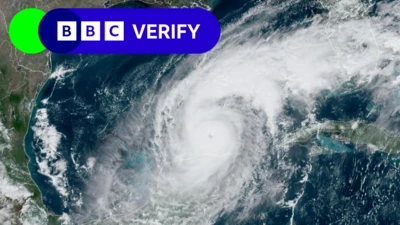We've updated our Privacy and Cookies Policy
We've made some important changes to our Privacy and Cookies Policy and we want you to know what this means for you and your data.
Hypothermia warning for young drinkers
- Author, Caroline Parkinson
- Role, Health editor, ±«Óătv News website
The image of a young drinker suffering the effects of a night out, in high heels and skimpy outfit, is usually accompanied by warnings about not drinking too much, and being careful about getting home safely.
But there is another danger, and one that most young people - men and women - are unaware of: hypothermia.
It is not something normally associated with a night out, but experts are warning it is a risk.
And it is the journey home that can be the most dangerous.
Alcohol fools the body into thinking you feel warm, when in fact your skin is not. And, should someone fall over and pass out, they are at risk both of injury and of hypothermia.
London Ambulance Service paramedic Brian Hayes said: "We have had quite a few cases, especially last year when it was really cold, but it's a problem that's always been there.
"Alcohol causes a rush of blood to the surface of the skin, which gives a nice warm feeling.
"And if people get fairly drunk at home before they come out - what's called pre-loading - they won't feel the true temperature outside and so won't feel the need to take a coat.
"If it's icy, it's not just the hypothermia, it's slipping on the ice. And if they do slip over, it doesn't take long for them to become unconscious."
Year-long risk
Hypothermia usually occurs gradually.
Common signs include shivering, slurred speech, abnormally slow rate of breathing, cold and pale skin, fatigue, lethargy and apathy.
Those with mild hypothermia (32-35°C) display lethargy, confusion, shivering, loss of fine movement. The symptoms of moderate hypothermia (28-32°C) are delirium and slowed reflexes.
Severe hypothermia (below 28°C) results in patients with very cold skin who are unresponsive and who may even be in a coma.
The elderly and babies under one year old are most at risk.
Patients need to be warmed carefully.
John Heyworth, a former president of the College of Emergency Medicine, which represents A&E doctors, said: "People get hypothermia throughout the year, if the circumstances are right.
"If you go out and your clothing is fairly flimsy, and you're exposed to wet and windy conditions, you can get cold at any time of year.
"Even though the temperature is relatively mild, it's still a risk.
"At new year, people tend to under-dress when they go out; men and women.
"But if you add skimpy clothing and too much alcohol to cold and wet weather - and people are inactive on a pavement or in a gutter, they are at risk.
"We don't expect to see people dying, but people are putting themselves at risk of exposure.
"We're keen for people to have a good time. We don't want to be kill-joys."
And perhaps, if your mother advises you to wear a coat, she may be on to something.
Top Stories
More to explore
Most read
Content is not available








